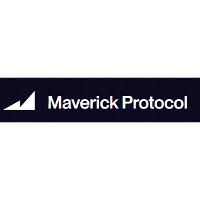
Maverick Protocol
Maverick Protocol is a decentralized finance (DeFi) platform offering tools and smart contracts for building and interacting with DeFi applications.
Overview
Maverick Protocol is a decentralized finance (DeFi) platform designed to provide developers with smart contract tools and infrastructure to build DeFi applications. It offers a suite of repositories on GitHub that include smart contracts and related codebases, enabling developers to create, deploy, and interact with DeFi protocols efficiently. The platform targets DeFi developers and infrastructure teams looking for composable and customizable DeFi building blocks.
The protocol focuses on delivering modular and extensible smart contracts that can be integrated into larger DeFi ecosystems. While specific documentation and detailed feature descriptions are limited, the available GitHub repositories suggest active development and maintenance of core DeFi components. Maverick Protocol aims to simplify the creation of decentralized trading, lending, or liquidity solutions by providing foundational code and tools.
Developers can get started by exploring the open-source repositories on GitHub, cloning the code, and integrating the smart contracts into their projects. Since official documentation is not prominently available, users will need to rely on the codebase and community channels for support and implementation guidance. The protocol’s active GitHub presence indicates ongoing updates and potential for community contributions.
The Problem
Developers building DeFi applications often face challenges with fragmented, complex smart contract architectures and lack of modular, reusable components. This slows development and increases risk of errors or vulnerabilities.
The Solution
Key Features
Maverick Protocol Alternatives
Explore web3 competitors and apps like Maverick Protocol.

Streams
Pricing
Open Source | |
|---|---|
| Price (Monthly) | Free |
| Price (Annual) | Free |
| Messaging | N/A |
| Support | Community support via GitHub |
| Analytics |
Start Building Now
Reliable RPC, powerful APIs, and zero hassle.
Resources
Maverick Protocol provides multiple open-source repositories on GitHub that serve as the primary resource for developers. These repositories contain the smart contracts and code necessary to build and extend DeFi applications using the protocol.








